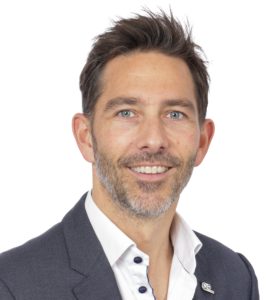Tell us a bit about the history of Quick Release?
QR_ turned 20 this year having been established when Rob Ferrone joined forces with Adam Grant, both contractors working for Ford at the time. Recognising that their strengths were in delivering results for clients, Adam Blomerley was brought onboard as CEO and set about transforming QR_ from a provider of day-rate change management heads to a specialist product data management (PDM) consultancy.
QR_ is now focused on data-driven engineering as a means to accelerate NPD programmes and increase the efficiency of engineering teams. Recognised by both the Financial Times and Forbes as a leading automotive specialist, QR_ now employs over 400 PDM professionals, split between the UK, USA, Spain and Australia.
Ford has been a cornerstone client, with rolling projects in their Dunton development facility in Essex, global headquarters in Detroit, and formerly Ford-Werke in Cologne. A steady stream of referrals has brought sectoral diversity, with rail, aerospace, defence, energy and warehousing all increasingly prominent – although automotive remains the core of the business, with a heavier bias towards start-ups.
What services do you provide to operators/manufacturers in the commercial vehicles sphere?
Although a lot of off-piste activity takes place tailored to specific requirements and circumstances, QR_ buckets it’s services into master PDM, prototype build and launch operations, and operational performance improvement.
Outcomes can be viewed in compressed programme duration, as with Ford’s 3.5-tonne Transit Ambulance, which went from concept to build in under 12 months. It reduced costs as per a global LCV prototype build programme that saw 20% generation-on-generation savings, or efficiency of engineering teams, with an EV start-up measuring a 25% productivity uplift for engineers after introducing a dedicated PDM function.
Most work addressing data quality takes place in a manufacturer’s bill of materials (BoM). Focusing on validation, cleansing and completeness, the objective is to ensure the ‘ingredients’ list for the finished product comes together as the engineers intended.
Getting this right early in a programme cycle will pay significant dividends later on – with fewer changes necessary between prototypes and series production, more time for suppliers to produce components without resorting to costly emergency logistics, and greater opportunities to identify components where weight or cost can be saved.
Addressing data flows is about converting the value within an organisation’s data into meaningful decisions. Better data quality helps address trust issues around centralised reporting, reducing the reliance on siloed spreadsheets which never fully account for the changes elsewhere in the programme.
It then becomes a question of usefulness. Many data sources have a periodicity of update, especially if data is being pulled into one place before being reported on. This lag can be the difference between a report being used and being ignored.
Prioritise people’s needs, not the system ones, and better data is more closely tailored and delivered timelier, drastically enhancing forward planning and driving earlier issue mitigation and resolution.
But the key factor throughout is people, not technology. QR_ are system agnostic, placing an emphasis on working unobtrusively with what they find, and focusing on generating immediate results.
What work are you doing with regards to electric vans and trucks?
QR_’s introduction to the world of electric commercials came with start-ups on both sides of the Atlantic, with an initial focus very much on right-sizing scalable systems and processes to allow both rapid initial progress and robust scalability down the road, evolving as the development programmes matured to focus on BoM quality and later prototype builds, with the occasional bit of firefighting along the way.
More recently we’ve got involved with the repowering and upcycling of heavy commercials and this introduced a new set of challenges around weight management, homologation and working with teams whose background may not be in automotive. It’s certainly an interesting space at the moment, and we’re keen to see more activity around hydrogen conversion for internal combustion applications less suited to electrification.
Any new products to talk about generally?
For QR_ it’s always more about new contexts of application rather than new products, but with recent changes to LST regulations and some big orders being placed for alternatively fuelled buses, we’re seeing more interest from quarters that we’re keen to explore.
Marcus Youden, Chief Growth Officer at Quick Release









